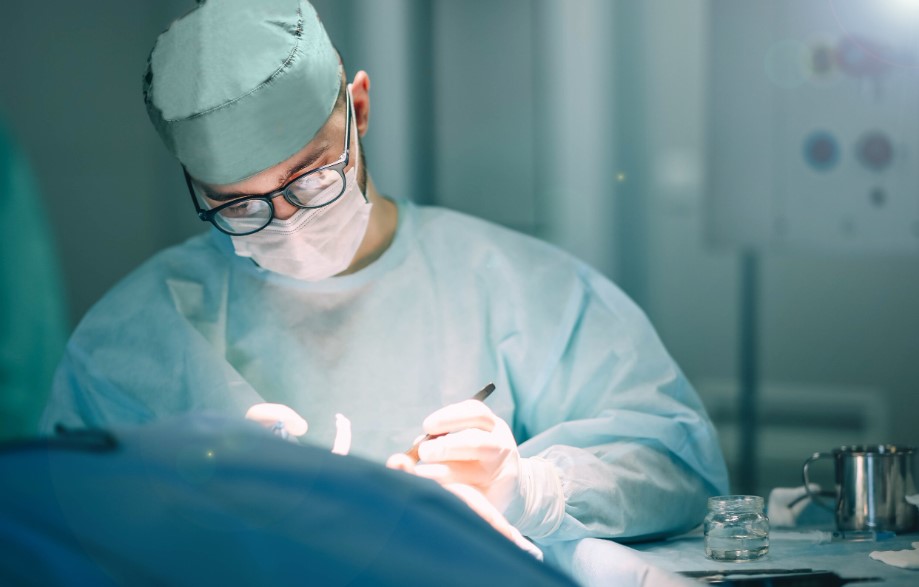
Antireflux surgery is in demand, especially in the US, because more than 60 million people have reported experiencing symptoms of acid reflux or gastroesophageal reflux disease (GERD). It is a condition in which food or stomach acid comes back into the esophagus due to weakened muscles causing a burning sensation. The gastric acids can damage the esophagus or even cause esophageal cancer necessitating the need for antireflux surgery. However, before going in for an antireflux surgery in Dallas or anywhere else, there are certain things to be kept in mind, read along as we discuss things to know before getting an antireflux surgery.
Symptoms
With occasional movements of stomach acids upward to the esophagus, it is common to have a burning sensation, which can be cured by taking digestive medicines and maintaining a proper diet, but in situations where the symptoms occur more often along with chronic cough, regurgitation of food and acid, bad breath, chest pain, lump in the throat and several more issues, it signifies a possibly serious condition indicating the need for surgery. Acid reflux is a treatable condition. Get in touch with the doctor, in case of experiencing any symptoms of chronic acid reflux.
Types of Surgeries
To cure GERD the following surgical options are available-
Fundoplication or Nissen Fundoplication – The general cause of acid reflux is loose muscles around the area where the esophagus meets the stomach. The common procedure that surgeons use to cure this condition is fundoplication. In this procedure, the doctor wraps the upper part of the stomach and the lower part of the esophagus with stitches. The stitches exert pressure at the end of the esophagus that prevents the upward flow of stomach acid and food. Often hiatal hernia is also repaired with this surgery. If detected, it is repaired first.
Nissen Fundoplication can be done by open or laparoscopic surgery. In laparoscopic repair, 3 to 5 small incisions are made in the belly to insert a thin tube with a tiny camera through one port and surgical tools through another. The camera helps the doctors to see the inside of the stomach on a video monitor inside the operating room. This allows the doctors to make precise repairs with minimum incisions, unlike open surgery. However, for patients with previous surgeries in the area, bleeding, size of repair needed and weight issues, the doctors may switch to an open procedure.
LINX surgery– In this surgery, a simple device (resembling a bracelet made of titanium magnets) called the LINX device is placed around the esophagus. It helps in restoring the reflux barrier, by allowing easy passage of food and prohibiting the opening of the muscles to allow upward movement of acid from the stomach. This is laparoscopic surgery and there are no restrictions on post-op diet and no side effects. LINX is generally performed in patients with no Hiatal hernias or small Hiatal hernias. To find out whether this anti-reflux surgery is available in the Dallas or Fort Worth region, reach out to a leading general or gastroenterologist in the area.
Endoluminal Fundoplication – This new procedure to repair reflux is easier than other processes as it does not involve any cuts in the belly. Here, a special camera on a flexible tube is passed down through the mouth into the esophagus. Using the flexible tool, doctors place small clips at the point where the esophagus meets the stomach to prevent the food and acid from coming up.
Risks
Like any other surgery, antireflux surgery also poses certain risks. Before going in for the surgery patients must consult the surgeon to consider all post-op risks to make a better decision. Some general post-op risks include reactions to medicines, breathing problems, blood clots, and infections. In rare cases, patients may experience severe risks such as damage to the stomach, esophagus, and intestine, or return of hiatal hernia. It is advised to consult the doctors immediately, in case of experiencing any severe post-op complications.
Recovery
The recovery period for patients depends on the surgical procedure they have undergone. In case of open surgery, a patient may be required to stay at the hospital for a week or so and then rest at home for a month or more depending on their progress. In the case of laparoscopic surgery, the recovery time is short. The patient is required to stay at the hospital for a day or so and the full recovery is generally expected within 2-3 weeks. Although acid reflux surgeries are safe and successful in case the burning sensation creeps back again, patients may need to undergo the surgery again. To avoid such a situation, patients should keep a check on their diet and follow the doctor’s prescriptions and advice carefully.
Conclusion
Antireflux surgery is an effective procedure for treating GERD. However, it is not recommended in every case. So it is better to consult an expert before making a decision. Residents of Dallas and Fort Worth can consult a reputable surgeon in their area to get a proper anti-reflux surgery and treatment.
